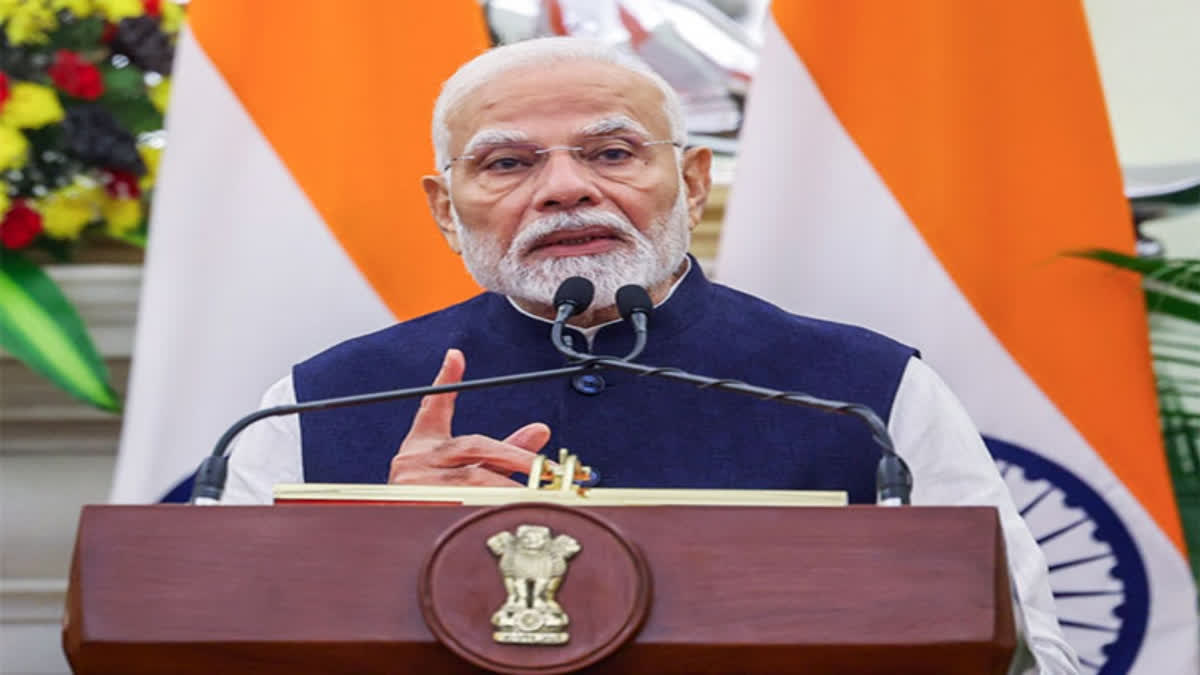Raipur: Prime Minister Narendra Modi on Sunday aired his most-awaited radio programme, Mann Ki Baat, highlighting the uniqueness of the folk tradition of Abujhmad in the Narayanpur district here.
The PM said, "The people of Abujhmad have been trying for years to preserve and promote their folk traditions, which are unique in the country as well as worldwide."
The PM further said the folk tradition is getting a new identity today and the coming generation is also putting efforts into taking the tradition forward.
Praising Butluram Mahatra's artwork, PM Modi said that he is keeping the art of the Abujh Madia tribe alive and contributing to the 'Beti Bachao, Beti Padhao' campaign, keeping the aim of the Swachh Bharat Mission.
Who is Butluram Mahatra: Butluram Mathra of Narayanpur district has been working for the economic and social development of the Abujh Madia tribe in Abujhmad for the last four decades. He is especially involved in educating and saving girls and also in the Swachh Bharat Mission campaign. Even before starting the Swachh Bharat Abhiyan, he used to pay special attention to cleanliness in his area.
Referring to various countries in his Mann Ki Baat programme, PM Modi said many programmes were launched on Indian culture and he spoke about the translation of the Ramayana into Arabic.
Chief Minister Vishnu Deo Sai has expressed happiness over the appreciation of the Butluram of Narayanpur by the PM for preserving and promoting folk art. The CM said that the tribal culture in Narayanpur is in its most original form and the Chhattisgarh government will promote it.
The word Abujhmad was first used by Captain CLR Glassford in his report in 1866–67. In the gazetteer granted in 1870, the name of this region was used as "Madiyan" or "Abujhmad."



